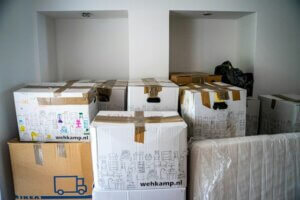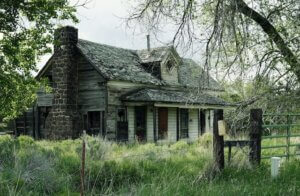Dealing with Hoarding in Deceased Estate Cleaning
Dealing with Hoarding in Deceased Estate Cleaning
Summary
This article emphasises the challenges posed by hoarding disorder and the importance of empathy. It provides a comprehensive cleaning strategy, including setting clear goals, seeking professional help, creating a safe environment, and implementing a systematic cleaning process. The article also mentions the significance of emotional support, and legal considerations, and offers three FAQs related to deceased estate cleaning.
When it comes to deceased estate cleaning, one of the most challenging situations you might encounter is dealing with hoarding. Hoarding, characterised by the excessive accumulation of items, can make the already sensitive task of estate cleaning even more complex. In this article, we will delve into the intricacies of addressing hoarding issues during deceased estate cleaning and how best to take on the complex project.
Understanding the Hoarding Disorder
Before delving into how to deal with hoarding during deceased estate cleaning, it’s essential to understand what hoarding disorder entails. Hoarding is not simply about collecting items; it’s a mental health condition where individuals find it challenging to part with possessions, leading to the accumulation of clutter over time.
Individuals with hoarding disorder often attach strong emotional significance to their belongings, making it difficult for them to let go, even when these items no longer serve any practical purpose. Recognising this as a mental health issue is crucial when approaching a deceased estate cleaning with hoarding problems.
The Sensitivity of Deceased Estate Cleaning
Deceased estate cleaning is a delicate task that involves not only the physical removal of belongings but also the emotional aspect of dealing with the loss of a loved one. When hoarding is involved, the sensitivity level is heightened. It’s vital to approach the situation with empathy, understanding, and a well-thought-out plan.
Developing a Comprehensive Cleaning Strategy
- Establish Clear Goals
The first step in dealing with hoarding during deceased estate cleaning is to establish clear goals. Identify what needs to be achieved during the cleaning process.
This might include:
- Sorting items into categories: Keep, Donate, Dispose of.
- Cleaning and sanitising the space.
- Identifying valuable items that need an appraisal.
- Seek Professional Help
Hoarding situations often require professional assistance. Consider collaborating with professional deceased estate cleaning services to ensure the best and fastest results for all involved.
- Create a Safe Environment
Safety is paramount during estate cleaning, especially when dealing with hoarding. Ensure that the environment is safe for both the cleaning crew and anyone else involved. This may involve addressing structural issues or safety hazards hidden beneath the clutter.
- Implement a Systematic Cleaning Process
Breaking down the cleaning process into manageable steps is essential. Start with less cluttered areas before tackling heavily hoarded spaces. Use a systematic approach to sort, clean, and organise items.
Emotional Support and Compassion
Dealing with hoarding in deceased estate cleaning necessitates a high level of emotional support and compassion. The individuals affected by hoarding disorder, as well as the family and friends dealing with the loss of a loved one, require understanding and empathy throughout the process.
Legal Considerations
In some cases, there may be legal considerations when dealing with hoarding in a deceased estate. Ensure that you are aware of local laws and regulations regarding the disposal of items and property transfer.
Cleaning a deceased estate with hoarding issues is undoubtedly a challenging task. However, with a well-planned strategy, professional assistance, and a compassionate approach, it can be managed effectively. Remember that empathy and sensitivity are paramount throughout the process to ensure a successful outcome that respects the memory of the deceased and provides closure for the living.
FAQs
What is Deceased Estate Cleaning?
Deceased estate cleaning, also known as estate cleanout or probate cleaning, refers to the process of cleaning and organising a property after the passing of its owner. This involves removing belongings, cleaning the premises, and ensuring that the property is ready for sale, rent, or transfer to beneficiaries. Deceased estate cleaning is often necessary to address clutter, and hygiene issues, and prepare the property for its next use.
How Do I Begin the Deceased Estate Cleaning Process?
Starting the deceased estate cleaning process can be overwhelming, but a systematic approach can help. Begin by identifying key goals, such as sorting items, cleaning the space, and addressing any legal requirements. Seek professional help, if necessary, especially when dealing with hoarding or emotionally challenging situations.
What Should I Do with Valuables and Personal Items Found During Cleaning?
During the deceased estate cleaning process, you may come across valuable items, sentimental possessions, or important documents. It’s crucial to handle these items with care. Valuables can be appraised, and personal items of sentimental value should be preserved or distributed as per the deceased’s wishes or legal requirements. Important documents, such as wills and legal papers, should be kept in a secure place and consulted with legal professionals if needed. When in doubt, consult with experts or legal advisors to ensure the appropriate handling of such items.
Why Choose AllAces?
AllAces Cleaning & Restoration has more than 35 years of industry experience handling a vast range of services, including deceased estate cleaning and hoarding clean-up. Our highly trained and certified technicians can ensure a smooth, discreet, and respectable service, returning the space to a pre-loss condition.



